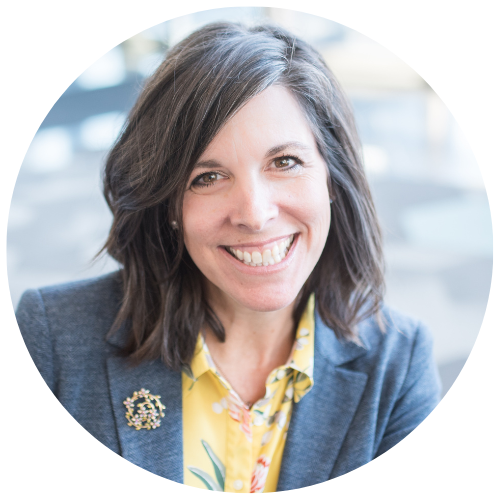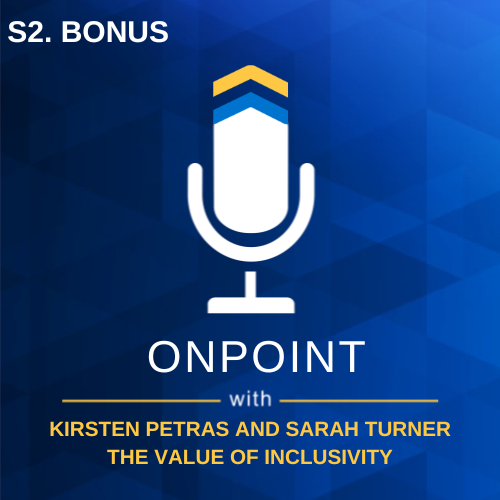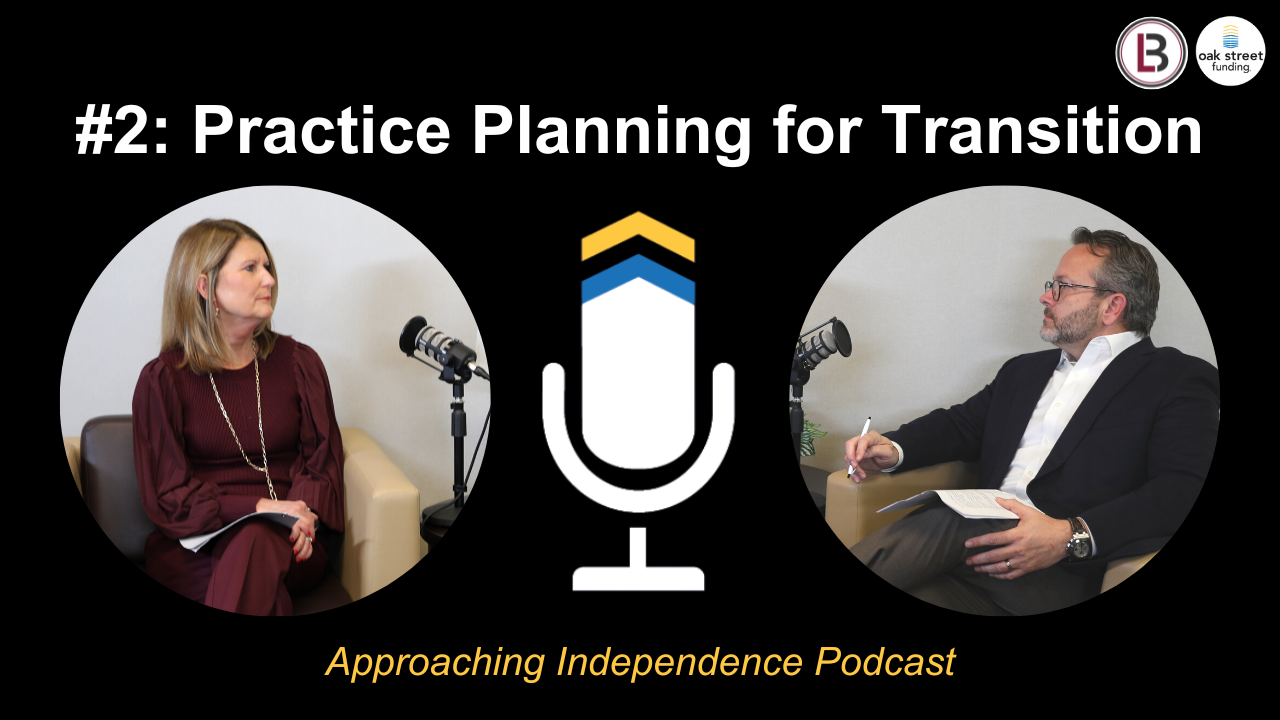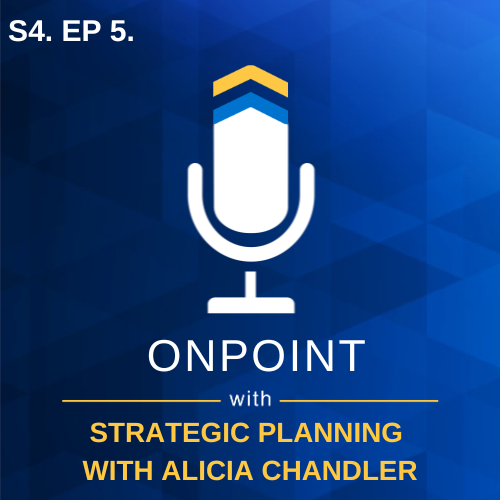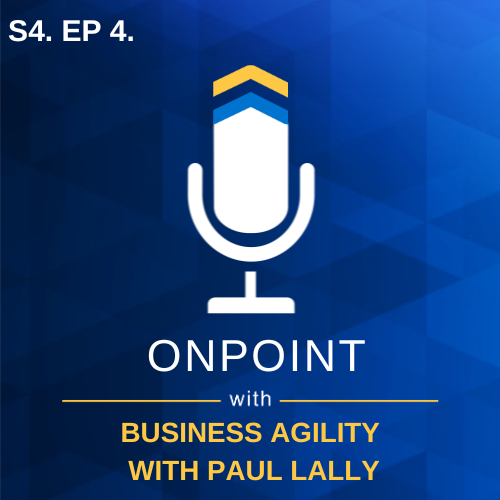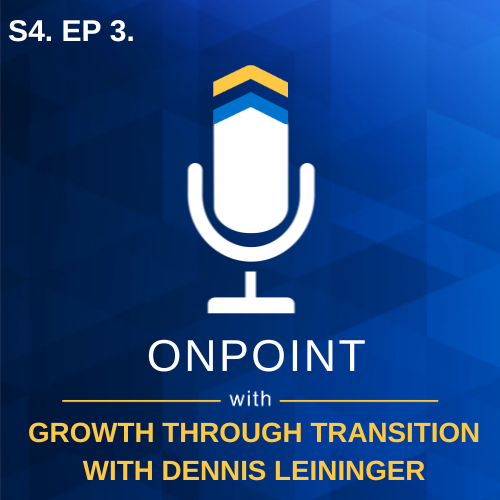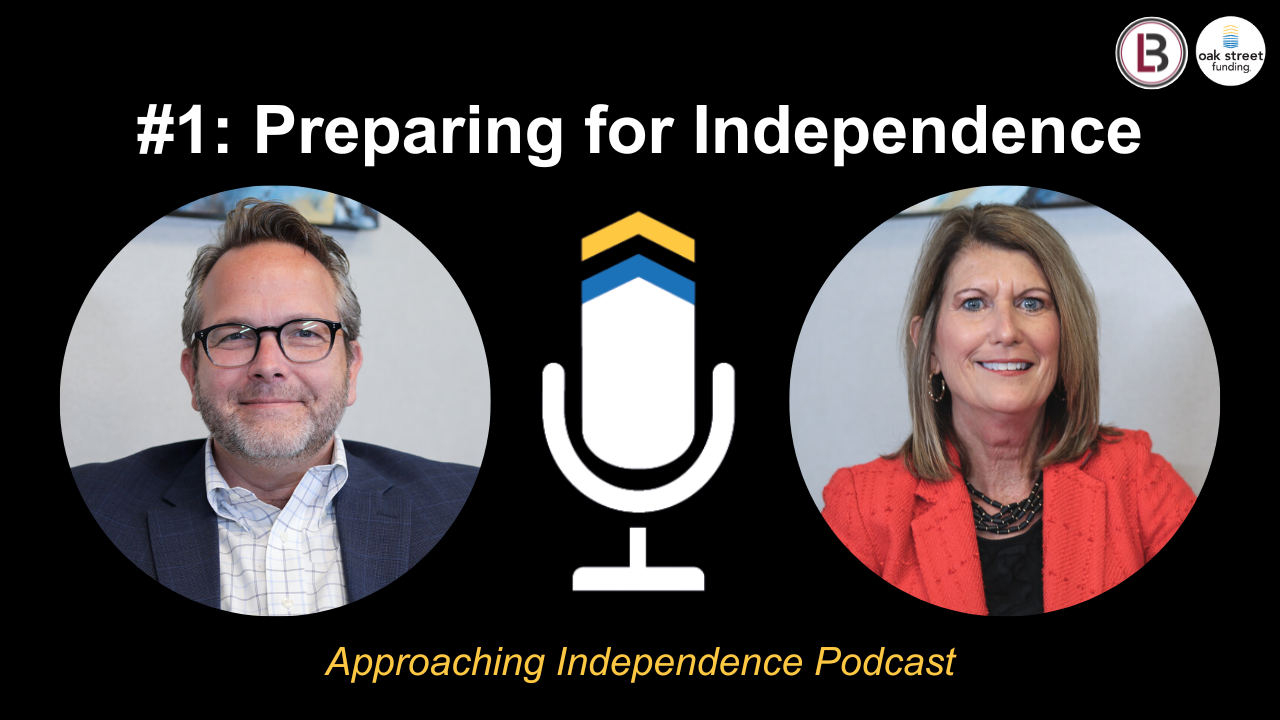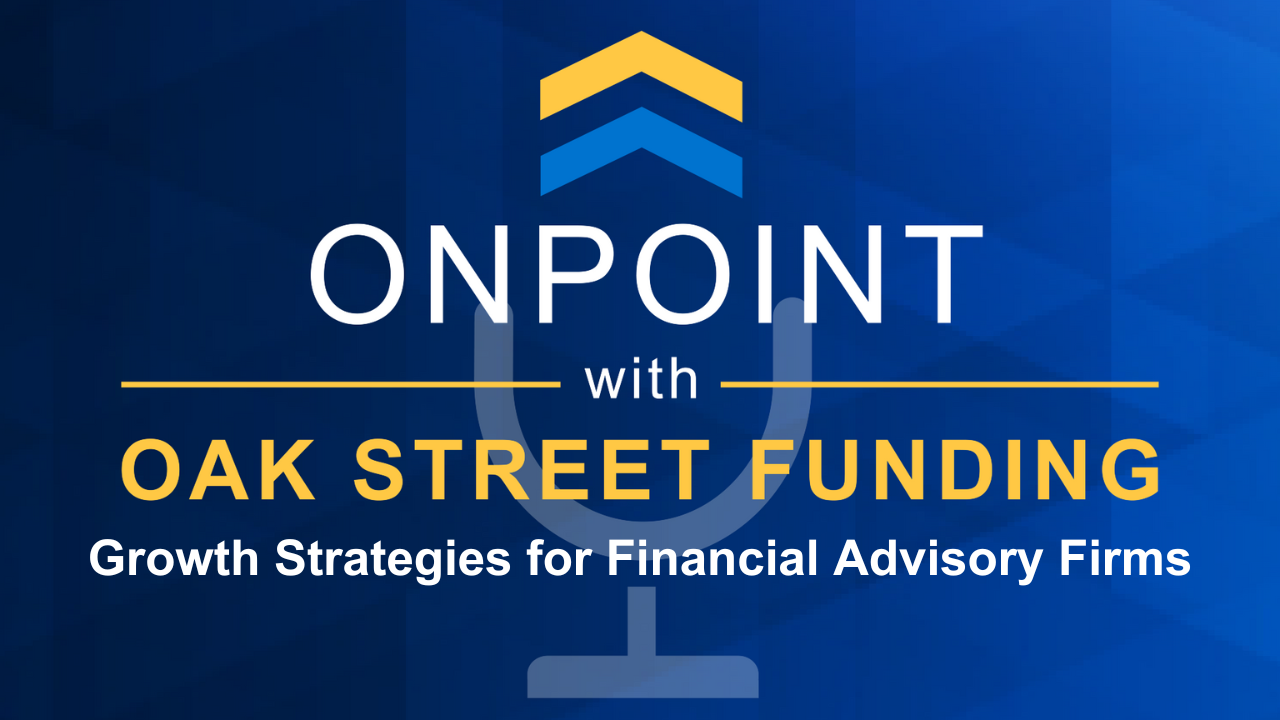S2. Bonus Episode - The Value of Inclusivity: A Conversation with Kirsten Petras and Sarah Turner
- 0.5
- 1
- 1.25
- 1.5
- 1.75
- 2
Bridget Haight: Hi and welcome to OnPoint, a podcast by Oak Street Funding, where we bring research and data-backed insights to dig into the minds of industry leaders to learn how to stand out and navigate and breakthrough this ever-changing industry. I'm your host Bridget Haight, and you can support this podcast by following us on Spotify, Apple Podcasts, on our website, or wherever you get your podcasts. We will be there hanging out, talking to industry leaders, and ready to empower you to grow your business. Now let's get OnPoint. Today, we welcome back both Sarah Turner principal with the Faurote Group and Kirsten Petras Director of Marketing and Partnerships at Oak Street Funding. In this special episode, we will be discussing the value of inclusivity in our daily lives. Diversity isn't just important in the workplace. Sarah, I'll ask you first. Why is it so important to embrace diversity in our personal lives?
Sarah Turner: There are lots of reasons. One of the things that I was thinking about as it relates to how do you set up the value prop, right? Why would you want to accomplish this? Why do you want to attain it? There's an exercise that we often do where we have a group of people that come to a training and we pass out a paperclip. Everybody gets one. We give them 60 seconds to think of as many ideas of how to use that paperclip. Then at the very end we say, time's up. Count your numbers, what's the highest in the room? Often it'll be maybe 10. So as a single person 10. I'll put them into groups of four. I want you to compare notes and I want you to come up with a list of all the original ideas that ended up being with the four of you. They'll often go from 10 to 20. All right, now we've got 20. Then we'll say every group of four is going to listen to this first group, read their list of 20. You're going to cross off any that you have, then you're going to tell me what's left over. By the time you get done, you'll go from 20 to at minimum 40. What we ask at the end is, "What did this prove?" What we know is as a single person you have a limit of what you can see at any given moment. When you include someone else, look how much further you can go. And so gosh, Kirsten, as a mom you think of this in every aspect. This is a 360 lens. It's not just as a contributor in the place that I work, in the teams that we get to work with, eight to five, eight to six every day. But when you go home I want that same thing for my boys and I know you do too. I mean, that's something we strive for.
Kirsten Petris: Absolutely Sarah. We both are not only raising children, we're raising young boys.
Sarah Turner: Yeah.
Kirsten Petris: In a wonderful community setting, that I think also our efforts as parents to get them to recognize the power of being better together is augmented in our community's cultures as well. So they're very fortunate in that sense. But when you take it down to an everyday lesson, we are constantly exposed to examples of being better together. So I think of my children, I think of the TV shows and the movies that they choose to watch, and if you just think of a movie like the X-Men, right? This is a production, it's a franchise of entertainment, that is really at the heart about people being better together, recognizing their differences and taking it to this extra step where those people who are different are actually outcasts. So it also shows the themes of bringing people together, of creating that more diverse skill set, that more diverse pool of talents, and how much further you can get. So take X-Men, make it Marvel and how the superheroes have to work together. Interestingly enough, in those examples, they struggle, They show the struggles. One superhero and another has to do something together and they inevitably stop the scene, primarily for comic relief, but in the moment realizing that they have to pause, kind of get back on the same path, and move it forward. So to the point of diversity in the workplace and your personal lives, if we're really trying to all focus now in our generation at our age and it feels uncomfortable, the more that we can expose the thought process and teach some skills and coping steps to creating diverse environments in our homes with younger people, this will not be uncomfortable for them.
Sarah Turner: Agreed.
Kirsten Petris: So with that I think it's wonderful to give them exposure. If you don't know, you're the adult, try to see what the themes are in the Disney movie. Try to recognize the themes in all these Star Wars programs that are out right now.
Sarah Turner: Right.
Kirsten Petris: And then talk to your children about it.
Sarah Turner: Yeah.
Kirsten Petris: Just have conversations. See what they see. Because in the end at our age awareness is one of the leading steps to making a change, to becoming more inclusive, to driving a more diverse voice and pool of thought. So that's a mindset. So it's seeing it and recognizing it. It's conversations with your children around the books they're reading, the shows that they're watching. Watch them with the neighborhood kids, what's happening there? Just be aware.
Sarah Turner: Right.
Kirsten Petris: And then have a conversation, and it can be quite simple.
Bridget Haight: Also what you're talking about watching these movies is all about getting curious, which is something that Sarah was telling us about earlier. Getting curious is so important.
Sarah Turner: It is, and one of the things that I want to instill in every person I get to interact with, including my family, my personal connections, so again that's 360 in my world, is this idea that I want the natural first thought for my boys, for instance, for myself, for the people that I get to work with, to be wonder what... And to ask a question to make sure that I am pulling someone in and giving them a moment. There's a story I read about a lead ER doctor for a hospital, and he was trying to really challenge his team: where would you naturally go? You would look at all the best ERs in the United States or in the globe, right? And you would say, "What are you guys doing?" He didn't. He asked a pit crew for an indie racing team to come and look at his ER. Now, why would you do that? Because you want to think beyond, "I'm curious, you haven't ever even been here. What would you do?" And the number of things that he said they gained, the coolness of what they got to achieve, and how fun it was just to think like someone else for a minute. To be able to say that's a characteristic that you want to embrace yourself, but also can teach someone else, that's empowering.
Bridget Haight: That's cool.
Kirsten Petris: Yeah, and as a person who's part of someone who's bold enough to say, "Let's go look at an indie pit crew - to figure out how to do it better in the emergency room."
Sarah Turner: Yeah.
Kirsten Petris: You're also needing to create a room where there's trust.
Sarah Turner: Yeah, absolutely.
Kirsten Petris: Because these ridiculous ideas become ingenious, but they get squashed if the rest of the room laughs at him and doesn't see the value in it. So building up a room where you can share these ideas, a curiosity and being bold and thinking, how can we do it differently? I mean, we're Oak Street Funding, we're a commercial lender. Five years ago commercial lenders weren't really doing a bunch of podcasts, right? Just a few years ago, we weren't really having these conversations. But recognizing that you got to be willing to say something, and you got to be bold enough to do something. Back to being moms, if we can raise young men who are bold enough to stand up and do something and say something, it'll be better for our communities, it'll be better in the workplaces, and I hope I raise a kid who one day says, "Wait a minute, we should go meet an indie pit crew."
Sarah Turner: I know, right? Me too. We're working on it. Aren't we?
Kirsten Petris: Exactly. Exactly.
Bridget Haight: So before we wrap up for today, I was going to ask Sarah if you have a way that you like to show children all about mindset and inclusivity, the way that Kirsten told us about Marvel movies and Encanto.
Sarah Turner: So I'm an avid reader. I love media by the way, I love movies. But I also read a lot. I think that sometimes it's good to give yourself a chance to look at a resource that is accessible, but also something that maybe is universally applicable no matter the age. There's a book called Mindset by Carol Dweck, and it talks a lot about helping someone understand, to Kirsten's point, awareness. How do I even recognize when I'm using a fixed mindset? What is that in comparison to having that open mindset, the willingness to say, let me do something bold that nobody's done. When you change or shift and you create an understanding, you get there. My oldest nephew on my side, my sister's oldest, just graduated from high school. He got the book Mindset from his high school football coach at the end of the season. I remember thinking," That's it!" I mean, that's what you want people to be able to have. I want for him... He's getting ready to go into this next journey. All of us have a next journey.
Kirsten Petris: Yeah.
Sarah Turner: How can we embody that concept? So listening to the stories that she offers and some of the studied research... Compelling. It makes you realize I can move the needle. And so, yeah, I would say mindset by Carol Dweck. It's one of my favorites.
Bridget Haight: Okay, and how do you spell Carol Dweck?
Sarah Turner: Last name? D- W- E- C- K. So Carol and then D- W- E- C- K.
Bridget Haight: Okay, there we go. Thank you so much.
Sarah Turner: All right.
Bridget Haight: Thank you all for listening to OnPoint, a podcast by Oak Street Funding, where we bring research and data- backed insights to dig into the minds of industry leaders, to learn how to stand out, navigate, and break through this ever- changing industry. I'm Bridget Haight and tune in next time, wherever you listen to podcast, as we get OnPoint. Don't forget to subscribe and leave us a review. Thanks for listening. To get in contact with someone at Oak Street Funding, please call 844-353-8022, that's 844-353- 8022, to learn more.
DESCRIPTION
Today, we welcome back both Sarah Turner, Principal with The Faurote Group and Kirsten Petras, Director of Marketing at Partnerships at Oak Street Funding. In this special episode, we will be discussing the value of inclusivity in our daily lives as they share that diversity isn’t just important in the workplace. Want to learn more about Oak Street Funding? Call 844-353-8022 to learn more.
Today's Host
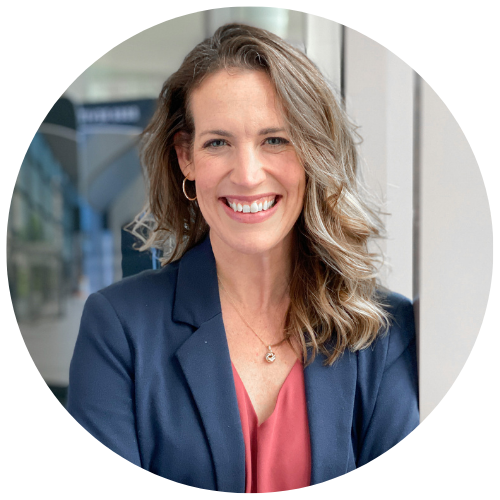
Bridget Haight
Today's Guests
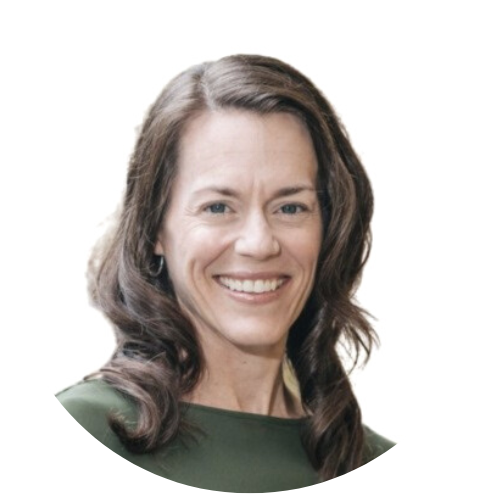
Sarah Turner
